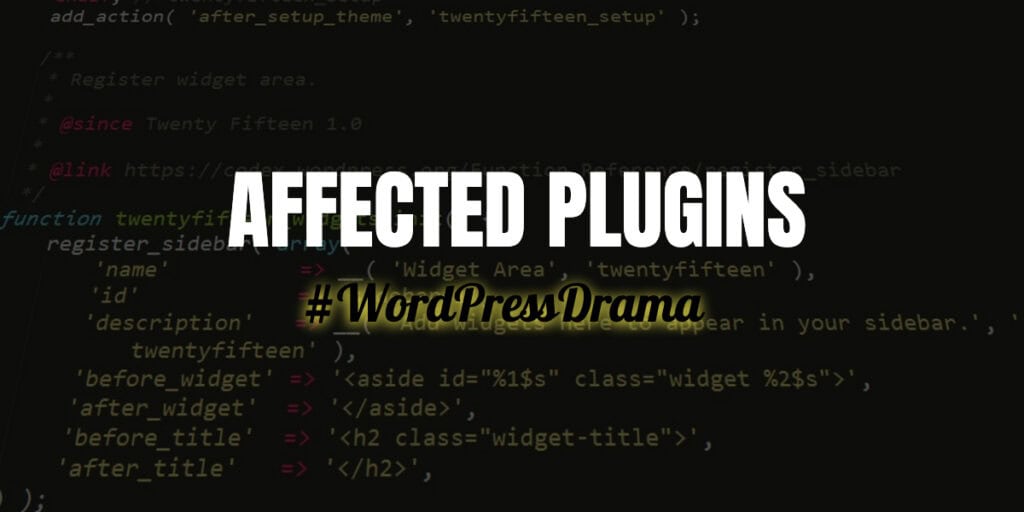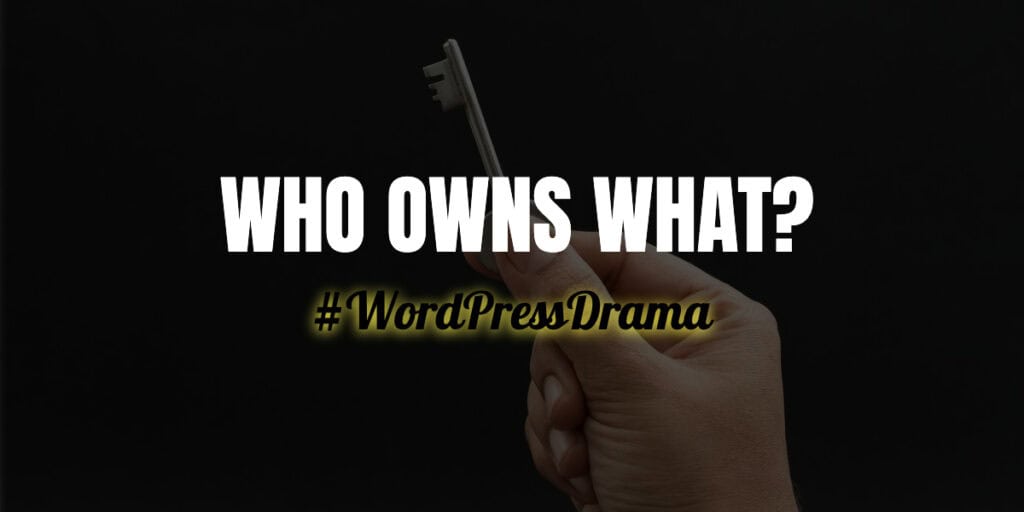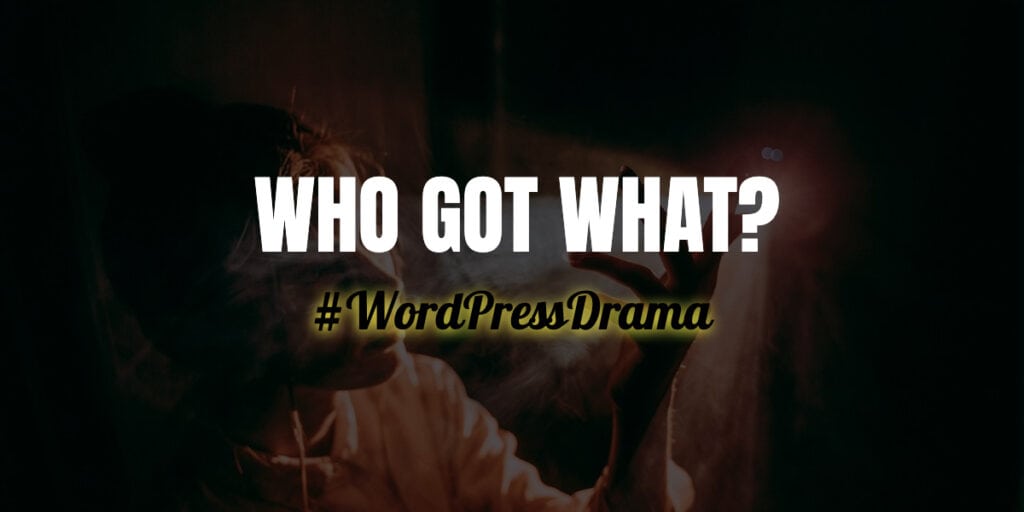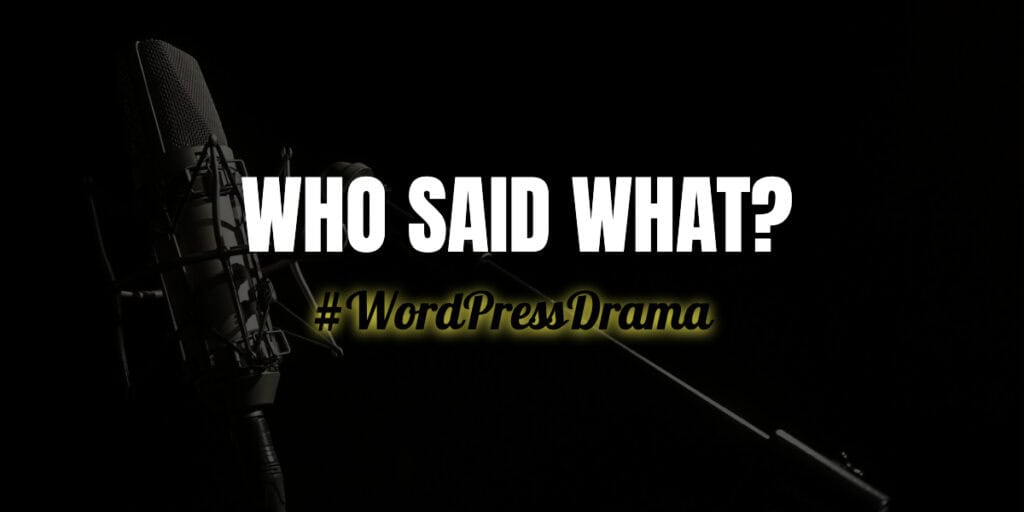November 1, 2024: @WordPress tweeted that since the start of the conflict, there have been over 28 million downloads of WordPress Core, nearly 297 million downloads of plugins, and over 7 million downloads of themes, challenging claims that WordPress is in trouble. The use of a crying-laughing emoji in the tweet was seen as sarcastic and unprofessional. Users criticized the tweet for lacking full context, noting that it should have included download statistics from previous periods for a more accurate comparison.
November 1, 2024: Mullenweg’s blog post on GPL licensing drew criticism for advocating a stricter interpretation regarding charging for nulled plugins. The community accused him of selectively enforcing open-source principles, raising concerns about leadership’s stance on GPL freedoms. This post can also be viewed in light of the legal case on Festinger Vault from Automattic (WordPress) and WooCommerce regarding trademark usage and GPL compliance. WP and Legal Stuff published a detailed article about the ‘The GPL and nulled plugins‘ discussing the matter in legal perspective.
November 2, 2024: Automattic’s lawyers filed an Administrative Motion to Shorten Time, requesting that their Motion to Dismiss be heard concurrently with WP Engine’s Motion for Preliminary Injunction. The motion is noted to be overlength, indicating ongoing legal complexities. Lawyer Mike Dunford has updated more on this in a Bluesky thread.
November 4, 2024: Automattic has published a blog entry titled “Defending Open Source: Protecting the Future of WordPress” which revisits the conflict with WPE and is, naturally, biased in favor of Automattic. Also, WP Engine releases a response supporting its motion for a preliminary injunction, addressing perceived contradictions by Matt Mullenweg and contesting misleading or false claims made by him.
November 4, 2024: The PHP Foundation has announced that Automattic will boost its contribution to the PHP community to $250,000, representing a 2.5-fold increase. While this move has garnered praise from many users, others have raised concerns about the timing of the contribution, suggesting it may be an effort to enhance Automattic’s online reputation following recent criticisms directed at the company within the WordPress community.
November 5, 2024: The International Misophonia Foundation releases a blog post criticizing Jetpack’s pricing model, which penalizes nonprofit organizations by categorizing them as “for-profit,” shedding light on Automattic’s business practices.
November 5, 2024: WP Engine files a reply to Mullenweg/Automattic’s opposition regarding its motion for a preliminary injunction, which includes three declarations: one from Sara Jenkins (a lawyer at Quinn Emmanuel) with exhibits, another from Ramadass Prabhakar (CTO at WP Engine) with separate exhibits, and a third from Olga Slobodyanyuk (a lawyer at Quinn Emmanuel). These documents address the ownership of WordPress.org, the submission of video copies and transcripts from interviews, and issues related to the ACF plugin.
November 7, 2024: Automattic launched wordpressenginetracker.com, a website dedicated to tracking the number of websites that have migrated away from WP Engine as their hosting provider since September 21, 2024. As of today, the tracker reported a total of 16,180 websites have been migrated. This revelation raised eyebrows in the WordPress community due to the controversial nature of the tracking. The inclusion of a downloadable CSV file listing all tracked domains sparked significant privacy concerns. Critics within the community argued that sharing domain information without consent was unethical and potentially a violation of privacy norms. Here is the github page for this, which shows Allan Cole as the contributor, an Automattic employee.
Automattic reportedly offers incentives for agencies to move sites to Pressable.





1 comment